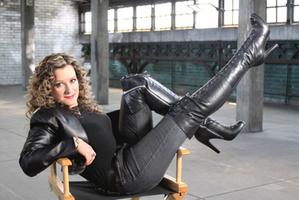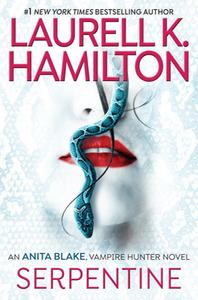
|
|
| photo: Ma Petite Enterprises | |
On your nightstand now:
Crystal Prescriptions by Judy Hall, Better Than Before and The Four Tendencies both by Gretchen Rubin.
Favorite book when you were a child:
At what age? Under age five it was The Churkendoose by Ben Ross Berenberg, illustrations by Dellwyn Cunningham. I have no idea why, but its message was one of fairness and that outward appearances aren't what's important. In early double digits, tween-ish, The Hundred and One Dalmatians by Dodie Smith, Charlotte's Web by E.B. White and Baby Island by Carol Ryrie Brink. Then I discovered Louisa May Alcott and fell in love with Little Women and the rest of her novels.
Your top five authors:
How can I possibly choose? Favorite poets are Robert Frost and Mary Oliver currently. I only discovered Ms. Oliver in the last few years. Frost has been a favorite since high school. Current favorite nature writer is Douglas H. Chadwick. I love and have reread his book The Wolverine Way. My favorite hardboiled detective author is Robert B. Parker. Scott Cunningham is still my favorite for Wicca and metaphysics.
Book you've faked reading:
Why would I fake reading a book? I try never to fake anything; it sets a bad precedent.
Books you're an evangelist for:
Gretchen Rubin's books, which I've found extremely helpful and enlightening. I've been asking everyone I know to take her Four Tendencies quiz.
What You Can Change and What You Can't by Martin E.P. Seligman, Ph.D. --this is one of the best researched guides to what is genetic and what you can actually change about yourself. I'm on a huge self-improvement kick this year, and this book has helped me choose where to spend my energy for internal issues. If it's genetic and can't be changed, then it's a waste of energy and resources, so pick something else and move on. Strangely, knowing that my pessimism level could be up to 50% genetic has made me feel better about my natural gloominess and helped me be happier.
The Right Dog for You by Daniel F. Tortora. I have probably suggested this book to more people than any other. The personality tests in it aren't about the dogs, but about you as a person. I highly recommend that anyone thinking about adding a new fur kid to their household read this book. I would never have owned a pug if I hadn't read this book first, and pug has become my breed. I believe if more people put thought and effort into finding the right dog breed for them that it would save the lives of thousands of unwanted animals across the country. Isn't that worth taking a few quizzes in the back of an excellent book? Also, as a writing aside, when I have a new character that isn't talking to me, I'll run them through the quizzes in this book so that I figure out who they are. I've used it as a writing tool for years.
 Book you've bought for the cover:
Book you've bought for the cover:Cover alone has never persuaded me to buy a book; it's one of the reasons I prefer to browse in a bricks-and-mortar bookstore, so I can read the beginning of a book, not just the cover blurb, or just the beginning. Most books start well, but I want to know if the writer can sustain the voice further into the novel. I'll pick up a book for a cover, but it's like a pretty woman, or a handsome man--beauty alone isn't enough.
Book you hid from your parents:
The only time I had to hide books from my grandmother was if she'd decided I needed to go outside and play like a normal kid, then she'd frisk me at the door for the books I'd hidden on me. If she didn't, I'd just climb a tree, settle on a limb and read until she called me back to the house. Other than that, my grandmother believed if I was old enough to be interested in a book, then I was old enough to decide for myself. I'm so glad she didn't censor me and just trusted me to know what I needed to read, and when I needed to read it. I think I would either be a very different writer, or not be a writer if she had tried to filter my reading through her preferences and morals.
Book that changed your life:
Robert E. Howard's short story collection Pigeons from Hell. I was 14 and found it on the little wire rack at a local drugstore. It was the first heroic fantasy and horror I ever read. I'd been trying to write my own stories starting at about 12, but never finished one, because I was still trying to imitate Louisa May Alcott. After I read Howard's stories, I realized that not only did I want to be a writer, but this was what I wanted to write. It would be decades later that I came to learn that Alcott herself wrote horror for the magazines of her day. Alcott was important to me, though, because she was the first female author I ever read who had supported her family through her writing, and in a century when it was even rarer. Robert E. Howard was my gateway drug to Poe, Lovecraft, Stephen King and Anne Rice's Interview with the Vampire.
Favorite line from a book:
"I was far from home, and the spell of the eastern sea was upon me." --from The Festival by H.P. Lovecraft. It's been one of my favorite opening lines since I was a teenager.
Five books you'll never part with:
So many, but if I have to make a list: The Hundred and One Dalmatians by Dodie Smith, Charlotte's Web by E.B. White, To Kill a Mockingbird by Harper Lee, Robert B. Parker's Spenser books and Rex Stout's Nero Wolfe books. I realize that in listing entire series of books that I'm cheating on the question, but honestly, I can't narrow it down, and still feel the list is incomplete. This leaves out so many poets, so many books and authors. Asking this question to a covetous bibliophile like me is like asking to choose favorite children.
Book you most want to read again for the first time:
The first book in David Eddings's the Belgariad series, Pawn of Prophecy. I'll mention his wife, Leigh Eddings, here, because she began to be a credited co-author, and David Eddings said that her name should have been on the books years before.
What books most influenced you as a writer or as a person:
Some of this was already answered above, but Charlotte's Web by E.B. White was the first book that I consciously remember studying to see how his voice and style worked. I read him not just for the story, but to see how the magic trick worked. The Hundred and One Dalmatians helped me understand how to be part of a healthy couple, and other positive life lessons, which still hold me in good stead today. Robert E. Howard I mentioned above in more detail, but I'll add that his stories were the beginning of me learning how to write a good fight scene. Robert B. Parker's Spenser series is where I first learned to write good dialogue, you can still hear the echo of him in my writing today, just as you can hear the echo of Raymond Chandler and Dashiell Hammett in his. Salem's Lot by Stephen King was the first time I read about vampires that were in modern, everyday America. I still remember the scene where the would-be vampire hunters drag a vampire out from underneath a trailer crawl space. It was such an ordinary setting for something so frightening. I remember as a teenager reading and rereading that one scene trying to figure out why and how it worked, studying the mechanics of the scene. Andre Norton was my favorite science fiction and fantasy writer as a young teen, but it wasn't just her stories that impacted me. There was a small author bio in the back of one of her novels; it stated that she'd had to drop out of college due to ill health and that she had cats. It made her seem real, ordinary, and she was a woman writing what I wanted to write. If she could do it, maybe I could do it, too.

